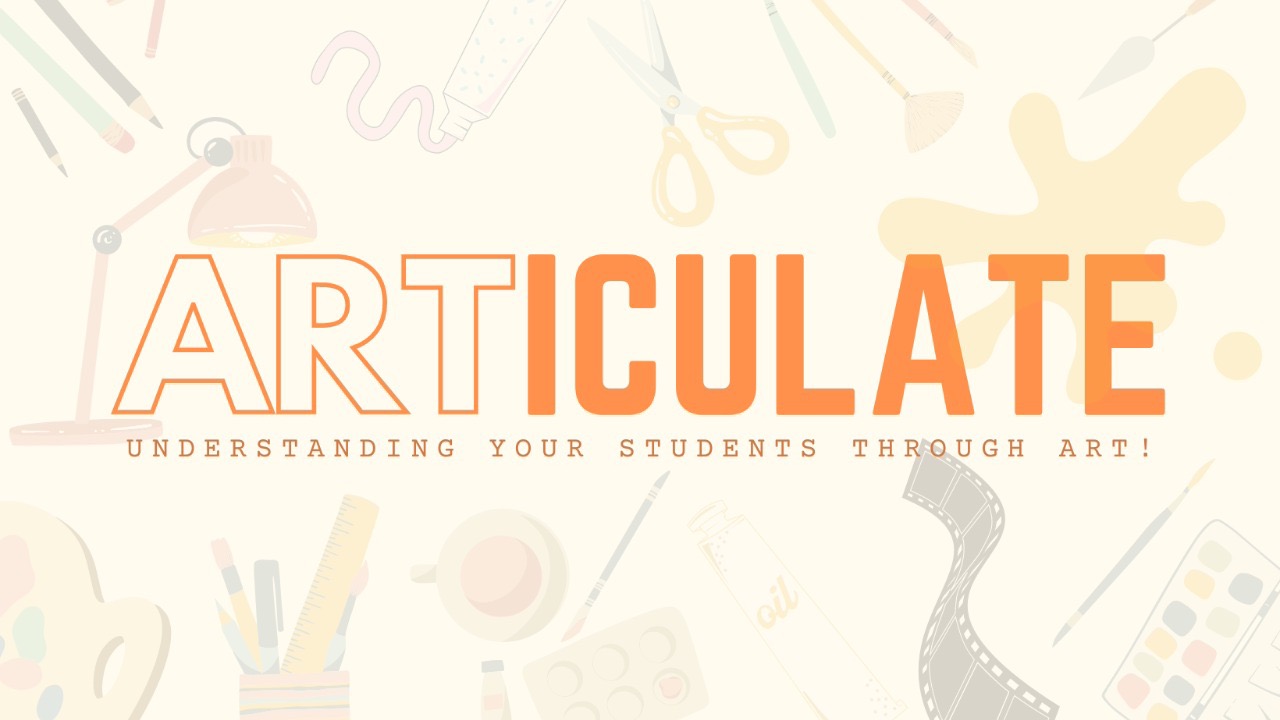
ARTiculate: Understand your students through art
By ADELENE NISHANTHINI
Overview
Teaching through and beyond the pandemic requires of us to answer one fundamental question: What does this pandemic mean for our students and their ability to learn?
The pandemic continues to present various challenges to humanity. Communities across the globe face various threats and are also learning to adapt to this ever changing situation. With school being shut, children are stranded at home with extremely limited contact with friends, limited to access to any form of remote learning, lacking physical activity. The impact of all these circumstances on students must be understood, their needs met.
Learning how to cope with adversity is an important part of healthy child development. The reactions to trauma vary from person to person, and can interfere with an individual’s sense of safety and self, self-efficacy, navigation of relationships and emotional regulation. We learn that we can equip our students with skills to make sense of their experiences and build resilience.
ARTiculate is a programme developed to intentionally diminish the impact of the pandemic and other adverse experiences through an art based approach to build regulatory skills incorporating approaches from trauma informed care.
The curriculum is a year long program with different levels.
– Each level targets a set of emotional and regulatory skills and key 21st century skills over three months
– The Program is structured for two variants – Support the teacher to implement the program using our curriculum in their schools ; Classes offered by Thin Black Brush.
– 1-2 classes per week for students
– Teachers supported with Trauma informed art techniques for facilitating wellbeing everyday
– An art project at the end of each term built off the art work explored through the term
– Analysing student art to understand their well being and mental health at regular intervals and recommending strategies to regulate moods and emotions
– Feedback collected from students, teachers and parents to monitor impact of the proposed program.
– Curriculum crafted to be implemented online and on-field.
The simplicity of the curriculum and implementation design makes the programme rewarding in terms of its implementation. The programme’s effectiveness depends on the quality of the relationship between the adult(teacher/parent/facilitator) and the student, even though we have a strong monitoring & evaluation in place.
All lessons focus on empowering students to express, regulate and understand themselves and to enable them to grow holistically.
An example for a set of skills is attached below.
Expected Impact
Research and the study of neuroplasticity gives us hope that children who have experienced trauma and toxic stress can rewire themselves overtime into mindful individuals.
For students:
– Promote collaboration and facilitate meaningful relationships and connections among themselves
– Self awareness & skills to self regulate – being able to cope with and accept uncertainty , flexibility, persistence, planning goals, and modelling conditions .
– Helping students identify , track what their mood is and how their mood affects their learning
– Equipped with techniques to manage emotions and moods
– Ability to form healthy relationships and connections
– A sense of hope, joy and belief in their ability to effect change, learn and re-connect
– Increased ability to retain attentiveness, engagement and curiosity
– Exhibit Perceptives, perspectives and critical thinking skills to solve for problems
– Increased
For teachers/facilitators
– Empower Student voice, choice and agency empowered by identifying and building on their strengths.
– Curate plans and structure the day adopting techniques required for a post- pandemic context
– Techniques that will help regain student attentiveness and interest
Adopt & Adapt
To implement the program, buy in would happen through school meetings, consultation with stakeholders. The program can be implemented in online and on-field modes hence the feasibility is high. Funding will allow for staffing and procuring resources for on-field mode and consulting charges to support online mode. It can be implemented within the country and outside and can adapted to the context of the institution and customised to suit specific logistics with time, expertise and content.